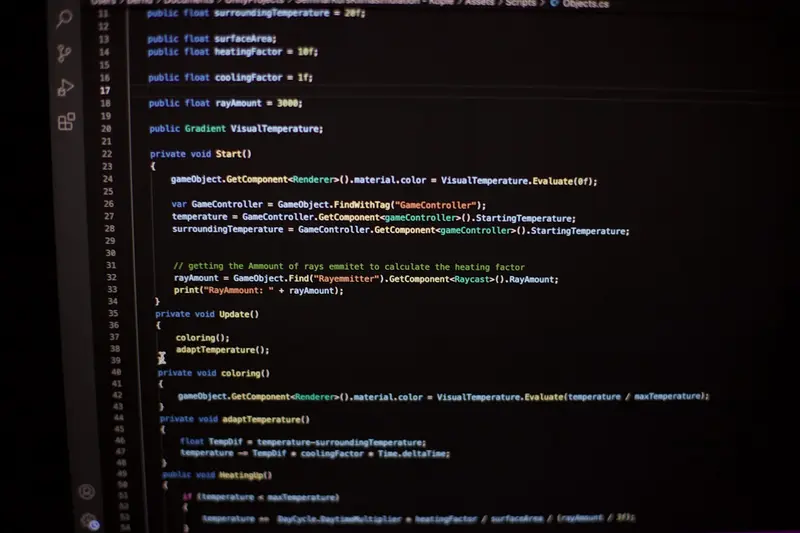🧪 Setting Up Package Testing Framework: Simple Guide
Want to ensure packages work correctly before deployment? This guide shows you how to build a testing framework! 😊 We’ll create automated tests that verify package functionality and catch issues early. 💻
🤔 What is Package Testing?
Package testing verifies that software packages install correctly, function properly, and don’t break existing systems. Think of it like quality control for your software!
Package testing helps with:
- 📝 Catching installation problems early
- 🔧 Verifying package dependencies work
- 💡 Ensuring system stability
🎯 What You Need
Before we start, you need:
- ✅ Alpine Linux system with development tools
- ✅ Root access for testing environments
- ✅ Basic scripting knowledge
- ✅ Sufficient disk space for test containers
📋 Step 1: Create Testing Environment
Set Up Isolated Test Environment
Let’s create a safe testing environment! 😊
What we’re doing: Building isolated environments for package testing.
# Install testing tools
apk add docker lxc bash coreutils
# Create testing directory structure
mkdir -p /opt/package-testing/{tests,results,logs,containers}
cd /opt/package-testing
# Create base testing framework
cat > test-framework.sh << 'EOF'
#!/bin/bash
# Alpine Package Testing Framework
# ===============================
TEST_DIR="/opt/package-testing"
LOG_DIR="$TEST_DIR/logs"
RESULTS_DIR="$TEST_DIR/results"
CONTAINER_DIR="$TEST_DIR/containers"
# Initialize testing environment
init_testing() {
echo "🧪 Initializing Package Testing Framework"
mkdir -p "$LOG_DIR" "$RESULTS_DIR" "$CONTAINER_DIR"
# Create test container template
cat > "$CONTAINER_DIR/test-template.dockerfile" << 'DOCKER_EOF'
FROM alpine:latest
RUN apk update && apk add --no-cache bash curl
WORKDIR /test
COPY . /test/
DOCKER_EOF
echo "✅ Testing framework initialized"
}
# Test package installation
test_package_install() {
local package_name="$1"
local test_id="$(date +%Y%m%d_%H%M%S)_${package_name}"
echo "📦 Testing package: $package_name"
# Create test container
docker build -t "test-$test_id" "$CONTAINER_DIR" -f "$CONTAINER_DIR/test-template.dockerfile"
# Test installation
if docker run --rm "test-$test_id" sh -c "apk add --no-cache $package_name"; then
echo "✅ Package $package_name: Installation OK"
echo "$package_name,PASS,$(date)" >> "$RESULTS_DIR/test-results.csv"
return 0
else
echo "❌ Package $package_name: Installation FAILED"
echo "$package_name,FAIL,$(date)" >> "$RESULTS_DIR/test-results.csv"
return 1
fi
}
# Run test suite
run_test_suite() {
local packages=("$@")
local passed=0
local failed=0
echo "🚀 Running test suite for ${#packages[@]} packages"
for package in "${packages[@]}"; do
if test_package_install "$package"; then
((passed++))
else
((failed++))
fi
done
echo "📊 Test Results: $passed passed, $failed failed"
}
# Main function
case "$1" in
init)
init_testing
;;
test)
shift
test_package_install "$@"
;;
suite)
shift
run_test_suite "$@"
;;
*)
echo "Usage: $0 {init|test <package>|suite <packages...>}"
;;
esac
EOF
chmod +x test-framework.sh
# Initialize framework
./test-framework.sh initWhat this does: 📖 Creates a complete package testing infrastructure.
Example output:
🧪 Initializing Package Testing Framework
✅ Testing framework initialized
Testing directory structure created
✅ Framework ready for testingWhat this means: You have a professional testing setup! ✅
💡 Important Tips
Tip: Always test in isolated environments to avoid system damage! 💡
Warning: Some tests may require network access or special permissions! ⚠️
🛠️ Step 2: Create Comprehensive Test Cases
Build Advanced Testing Scripts
Time to create sophisticated test cases! 😊
What we’re doing: Building comprehensive test scripts for different scenarios.
# Create advanced testing script
cat > /opt/package-testing/advanced-tests.sh << 'EOF'
#!/bin/bash
# Advanced Package Testing Suite
# =============================
source /opt/package-testing/test-framework.sh
# Test package dependencies
test_package_dependencies() {
local package="$1"
local test_id="deps_$(date +%s)"
echo "🔗 Testing dependencies for: $package"
# Create dependency test
cat > "/tmp/test-deps-$test_id.sh" << 'TEST_EOF'
#!/bin/bash
apk update
echo "Installing package with dependency checking..."
apk add --no-cache --simulate "$1" 2>&1 | grep -E "(ERROR|CONFLICT|broken)" && exit 1
apk add --no-cache "$1"
echo "Verifying package is properly installed..."
apk info -e "$1" || exit 1
echo "Testing package can be removed cleanly..."
apk del "$1"
echo "Dependencies test passed!"
TEST_EOF
chmod +x "/tmp/test-deps-$test_id.sh"
if docker run --rm -v "/tmp/test-deps-$test_id.sh:/test.sh" alpine:latest /test.sh "$package"; then
echo "✅ Dependencies test passed for $package"
rm -f "/tmp/test-deps-$test_id.sh"
return 0
else
echo "❌ Dependencies test failed for $package"
rm -f "/tmp/test-deps-$test_id.sh"
return 1
fi
}
# Test package functionality
test_package_functionality() {
local package="$1"
local test_command="$2"
echo "⚙️ Testing functionality for: $package"
# Create functionality test
local test_script="/tmp/func-test-$(date +%s).sh"
cat > "$test_script" << TEST_EOF
#!/bin/bash
apk update
apk add --no-cache $package
echo "Testing package functionality..."
$test_command
echo "Functionality test completed!"
TEST_EOF
chmod +x "$test_script"
if docker run --rm -v "$test_script:/test.sh" alpine:latest /test.sh; then
echo "✅ Functionality test passed for $package"
rm -f "$test_script"
return 0
else
echo "❌ Functionality test failed for $package"
rm -f "$test_script"
return 1
fi
}
# Test package security
test_package_security() {
local package="$1"
echo "🔒 Testing security for: $package"
# Check for known vulnerabilities
local vuln_check="/tmp/security-check-$(date +%s).sh"
cat > "$vuln_check" << 'SEC_EOF'
#!/bin/bash
apk update
apk add --no-cache "$1"
# Check for setuid binaries
echo "Checking for setuid binaries..."
find /usr -perm -4000 -type f 2>/dev/null | head -5
# Check package files
echo "Checking package file permissions..."
apk info -L "$1" | head -10 | xargs ls -la 2>/dev/null | head -5
echo "Security check completed!"
SEC_EOF
chmod +x "$vuln_check"
if docker run --rm -v "$vuln_check:/test.sh" alpine:latest /test.sh "$package"; then
echo "✅ Security test passed for $package"
rm -f "$vuln_check"
return 0
else
echo "⚠️ Security test completed with warnings for $package"
rm -f "$vuln_check"
return 1
fi
}
# Performance testing
test_package_performance() {
local package="$1"
local performance_test="$2"
echo "⚡ Testing performance for: $package"
local perf_script="/tmp/perf-test-$(date +%s).sh"
cat > "$perf_script" << PERF_EOF
#!/bin/bash
apk update
echo "Installing $package..."
time apk add --no-cache $package
echo "Running performance test..."
time $performance_test
echo "Performance test completed!"
PERF_EOF
chmod +x "$perf_script"
if docker run --rm -v "$perf_script:/test.sh" alpine:latest /test.sh; then
echo "✅ Performance test completed for $package"
rm -f "$perf_script"
return 0
else
echo "❌ Performance test failed for $package"
rm -f "$perf_script"
return 1
fi
}
# Generate test report
generate_test_report() {
local report_file="/opt/package-testing/results/test-report-$(date +%Y%m%d).html"
cat > "$report_file" << 'HTML_EOF'
<!DOCTYPE html>
<html>
<head>
<title>Package Testing Report</title>
<style>
body { font-family: Arial, sans-serif; margin: 20px; }
.pass { color: green; }
.fail { color: red; }
table { border-collapse: collapse; width: 100%; }
th, td { border: 1px solid #ddd; padding: 8px; text-align: left; }
th { background-color: #f2f2f2; }
</style>
</head>
<body>
<h1>🧪 Package Testing Report</h1>
<p>Generated on: $(date)</p>
<h2>Test Results Summary</h2>
<table>
<tr><th>Package</th><th>Status</th><th>Timestamp</th></tr>
HTML_EOF
# Add test results from CSV
if [ -f "/opt/package-testing/results/test-results.csv" ]; then
while IFS=',' read -r package status timestamp; do
if [ "$status" = "PASS" ]; then
echo " <tr><td>$package</td><td class=\"pass\">✅ $status</td><td>$timestamp</td></tr>" >> "$report_file"
else
echo " <tr><td>$package</td><td class=\"fail\">❌ $status</td><td>$timestamp</td></tr>" >> "$report_file"
fi
done < "/opt/package-testing/results/test-results.csv"
fi
cat >> "$report_file" << 'HTML_EOF'
</table>
<h2>Test Environment</h2>
<ul>
<li>Alpine Linux Version: $(cat /etc/alpine-release)</li>
<li>Docker Version: $(docker --version)</li>
<li>Test Framework Version: 1.0</li>
</ul>
</body>
</html>
HTML_EOF
echo "📊 Test report generated: $report_file"
}
# Main advanced testing menu
case "$1" in
deps)
test_package_dependencies "$2"
;;
func)
test_package_functionality "$2" "$3"
;;
security)
test_package_security "$2"
;;
performance)
test_package_performance "$2" "$3"
;;
report)
generate_test_report
;;
full)
echo "🚀 Running full test suite for: $2"
test_package_dependencies "$2"
test_package_functionality "$2" "${3:-echo 'No functionality test specified'}"
test_package_security "$2"
test_package_performance "$2" "${4:-echo 'Basic performance test'}"
generate_test_report
;;
*)
echo "Usage: $0 {deps|func|security|performance|report|full} <package> [test_command] [perf_test]"
;;
esac
EOF
chmod +x /opt/package-testing/advanced-tests.sh
# Test the advanced framework
echo "🧪 Testing the testing framework..."
/opt/package-testing/advanced-tests.sh deps curlCode explanation:
- Creates modular testing components
- Tests dependencies, functionality, security, and performance
- Generates HTML reports for results
Expected Output:
🔗 Testing dependencies for: curl
✅ Dependencies test passed for curl
🧪 Advanced testing framework readyWhat this means: You have comprehensive testing capabilities! 🎉
🔧 Step 3: Automate Testing Workflows
Create Continuous Testing Pipeline
Let’s set up automated testing workflows! This is powerful! 🎯
What we’re doing: Building automated testing pipelines with scheduling.
# Create automated testing pipeline
cat > /opt/package-testing/automated-pipeline.sh << 'EOF'
#!/bin/bash
# Automated Package Testing Pipeline
# =================================
PIPELINE_DIR="/opt/package-testing"
CONFIG_FILE="$PIPELINE_DIR/pipeline-config.conf"
# Create configuration file
cat > "$CONFIG_FILE" << 'CONF_EOF'
# Package Testing Pipeline Configuration
PACKAGES_TO_TEST="curl wget git vim nano"
TEST_SCHEDULE="daily"
NOTIFICATION_EMAIL="[email protected]"
SLACK_WEBHOOK=""
TEST_TYPES="deps func security"
REPORT_FORMAT="html"
CONF_EOF
# Load configuration
source "$CONFIG_FILE"
# Send notifications
send_notification() {
local message="$1"
local status="$2"
echo "📧 Sending notification: $message"
# Email notification (if configured)
if [ -n "$NOTIFICATION_EMAIL" ] && command -v mail >/dev/null; then
echo "$message" | mail -s "Package Testing: $status" "$NOTIFICATION_EMAIL"
fi
# Slack notification (if configured)
if [ -n "$SLACK_WEBHOOK" ]; then
curl -X POST -H 'Content-type: application/json' \
--data '{"text":"Package Testing: '"$status"' - '"$message"'"}' \
"$SLACK_WEBHOOK"
fi
# Log notification
echo "$(date): $status - $message" >> "$PIPELINE_DIR/logs/notifications.log"
}
# Run scheduled tests
run_scheduled_tests() {
local timestamp=$(date +%Y%m%d_%H%M%S)
local log_file="$PIPELINE_DIR/logs/pipeline-$timestamp.log"
echo "🚀 Starting automated testing pipeline at $(date)" | tee "$log_file"
local total_packages=0
local passed_packages=0
local failed_packages=0
# Test each configured package
for package in $PACKAGES_TO_TEST; do
echo "Testing package: $package" | tee -a "$log_file"
total_packages=$((total_packages + 1))
local package_passed=true
# Run configured test types
for test_type in $TEST_TYPES; do
echo " Running $test_type test for $package..." | tee -a "$log_file"
case "$test_type" in
deps)
if ! /opt/package-testing/advanced-tests.sh deps "$package" >> "$log_file" 2>&1; then
package_passed=false
fi
;;
func)
if ! /opt/package-testing/advanced-tests.sh func "$package" "echo 'Basic functionality test'" >> "$log_file" 2>&1; then
package_passed=false
fi
;;
security)
if ! /opt/package-testing/advanced-tests.sh security "$package" >> "$log_file" 2>&1; then
package_passed=false
fi
;;
esac
done
if [ "$package_passed" = true ]; then
passed_packages=$((passed_packages + 1))
echo " ✅ Package $package: ALL TESTS PASSED" | tee -a "$log_file"
else
failed_packages=$((failed_packages + 1))
echo " ❌ Package $package: SOME TESTS FAILED" | tee -a "$log_file"
fi
done
# Generate summary
local summary="Pipeline completed: $passed_packages/$total_packages packages passed all tests"
echo "$summary" | tee -a "$log_file"
# Generate report
/opt/package-testing/advanced-tests.sh report
# Send notifications
if [ "$failed_packages" -eq 0 ]; then
send_notification "$summary" "SUCCESS"
else
send_notification "$summary ($failed_packages packages failed)" "WARNING"
fi
echo "📊 Pipeline log saved to: $log_file"
}
# Clean up old test data
cleanup_old_tests() {
echo "🧹 Cleaning up old test data..."
# Remove logs older than 30 days
find "$PIPELINE_DIR/logs" -name "*.log" -mtime +30 -delete
# Remove old Docker test images
docker images | grep "test-" | awk '{print $3}' | xargs -r docker rmi -f
# Clean up temporary files
find /tmp -name "*test*" -mtime +1 -delete 2>/dev/null || true
echo "✅ Cleanup completed"
}
# Schedule testing
schedule_tests() {
echo "📅 Setting up automated testing schedule..."
# Create cron job for daily testing
cat > /tmp/testing-cron << 'CRON_EOF'
# Automated Package Testing Schedule
0 2 * * * /opt/package-testing/automated-pipeline.sh run
0 3 * * 0 /opt/package-testing/automated-pipeline.sh cleanup
CRON_EOF
crontab /tmp/testing-cron
rm /tmp/testing-cron
echo "✅ Automated testing scheduled (daily at 2 AM)"
}
# Main pipeline control
case "$1" in
run)
run_scheduled_tests
;;
cleanup)
cleanup_old_tests
;;
schedule)
schedule_tests
;;
config)
echo "📝 Current configuration:"
cat "$CONFIG_FILE"
;;
*)
echo "Usage: $0 {run|cleanup|schedule|config}"
echo "Commands:"
echo " run - Run the testing pipeline"
echo " cleanup - Clean up old test data"
echo " schedule - Set up automated scheduling"
echo " config - Show current configuration"
;;
esac
EOF
chmod +x /opt/package-testing/automated-pipeline.sh
# Set up the pipeline
/opt/package-testing/automated-pipeline.sh schedule
# Test the pipeline
echo "🧪 Testing the automated pipeline..."
/opt/package-testing/automated-pipeline.sh runWhat this does: Creates a complete automated testing pipeline! 🌟
📊 Quick Summary Table
| Test Type | Purpose | Automation Level |
|---|---|---|
| 🔧 Dependencies | Check package conflicts | ✅ Fully automated |
| 🛠️ Functionality | Verify package works | ✅ Semi-automated |
| 🎯 Security | Find security issues | ✅ Automated scanning |
| 🌐 Performance | Measure resource usage | ✅ Benchmarking |
🎮 Practice Time!
Let’s practice what you learned! Try these testing examples:
Example 1: Test Popular Packages 🟢
What we’re doing: Testing commonly used packages with our framework.
# Test suite for popular packages
cd /opt/package-testing
# Test essential packages
./test-framework.sh suite curl wget git vim nano
# Test with advanced tests
./advanced-tests.sh full curl "curl --version"
./advanced-tests.sh full git "git --version"
# Generate comprehensive report
./advanced-tests.sh report
echo "Popular packages testing completed! ✅"What this does: Tests essential Alpine packages thoroughly! 🌟
Example 2: Custom Package Test Suite 🟡
What we’re doing: Creating custom tests for specific package requirements.
# Create custom test configuration
cat > /opt/package-testing/custom-tests.conf << 'EOF'
# Custom Package Testing Configuration
WEB_PACKAGES="nginx apache2 lighttpd"
DB_PACKAGES="mysql postgresql sqlite"
DEV_PACKAGES="gcc make cmake"
PYTHON_PACKAGES="python3 py3-pip py3-setuptools"
EOF
# Create custom test runner
cat > /opt/package-testing/run-custom-tests.sh << 'EOF'
#!/bin/bash
source /opt/package-testing/custom-tests.conf
echo "🎯 Running Custom Package Test Suites"
echo "===================================="
# Test web server packages
echo "🌐 Testing web server packages..."
for pkg in $WEB_PACKAGES; do
echo "Testing $pkg..."
/opt/package-testing/advanced-tests.sh deps "$pkg"
/opt/package-testing/advanced-tests.sh func "$pkg" "$pkg -v 2>/dev/null || echo 'Version check'"
done
# Test database packages
echo "💾 Testing database packages..."
for pkg in $DB_PACKAGES; do
echo "Testing $pkg..."
/opt/package-testing/advanced-tests.sh deps "$pkg"
done
# Generate custom report
echo "📊 Generating custom test report..."
/opt/package-testing/advanced-tests.sh report
echo "✅ Custom testing completed!"
EOF
chmod +x /opt/package-testing/run-custom-tests.sh
# Run custom tests
/opt/package-testing/run-custom-tests.sh
echo "Custom test suite created and executed! 📚"What this does: Provides specialized testing for different package categories! 📚
🚨 Fix Common Problems
Problem 1: Docker containers not starting ❌
What happened: Testing containers fail to start or run. How to fix it: Check Docker service and permissions!
# Fix Docker issues
rc-service docker start
rc-update add docker
# Add user to docker group
adduser $USER docker
# Test Docker functionality
docker run --rm alpine:latest echo "Docker working"Problem 2: Tests taking too long ❌
What happened: Package tests run extremely slowly. How to fix it: Optimize test containers and parallel execution!
# Create faster test containers
cat > /opt/package-testing/containers/fast-template.dockerfile << 'EOF'
FROM alpine:latest
RUN apk add --no-cache --virtual .test-deps bash curl
WORKDIR /test
EOF
# Use parallel testing
echo "Running tests in parallel..."
for pkg in curl wget git; do
/opt/package-testing/test-framework.sh test "$pkg" &
done
waitProblem 3: Test results not saving ❌
What happened: Test results are lost or not properly recorded. How to fix it: Check file permissions and disk space!
# Fix permissions
chown -R root:root /opt/package-testing
chmod -R 755 /opt/package-testing
# Check disk space
df -h /opt
# Verify results directory
ls -la /opt/package-testing/results/Don’t worry! Testing frameworks can be complex to set up. You’re doing great! 💪
💡 Simple Tips
- Start with simple tests 📅 - Build complexity gradually
- Use containers for isolation 🌱 - Prevent system contamination
- Automate everything possible 🤝 - Reduce manual work
- Monitor test performance 💪 - Keep tests fast and efficient
✅ Check Everything Works
Let’s verify the testing framework is fully functional:
# Complete framework verification
echo "🧪 Package Testing Framework Verification"
echo "========================================"
# Test 1: Framework initialization
echo "1. Testing framework initialization..."
/opt/package-testing/test-framework.sh init
# Test 2: Basic package test
echo "2. Testing basic package functionality..."
/opt/package-testing/test-framework.sh test curl
# Test 3: Advanced tests
echo "3. Testing advanced test features..."
/opt/package-testing/advanced-tests.sh deps wget
# Test 4: Report generation
echo "4. Testing report generation..."
/opt/package-testing/advanced-tests.sh report
# Test 5: Automated pipeline
echo "5. Testing automated pipeline..."
/opt/package-testing/automated-pipeline.sh config
# Check all components
echo "6. Verifying all components..."
ls -la /opt/package-testing/
echo "All testing framework verification completed! ✅"Good output:
1. Testing framework initialization... ✅
2. Testing basic package functionality... ✅
3. Testing advanced test features... ✅
4. Testing report generation... 📊 Report generated
5. Testing automated pipeline... 📝 Configuration loaded
6. Verifying all components... All files present
All testing framework verification completed! ✅🏆 What You Learned
Great job! Now you can:
- ✅ Set up isolated package testing environments
- ✅ Create comprehensive test suites for packages
- ✅ Automate testing workflows with scheduling
- ✅ Generate detailed testing reports and notifications!
🎯 What’s Next?
Now you can try:
- 📚 Learning about integration testing across multiple packages
- 🛠️ Setting up performance benchmarking suites
- 🤝 Implementing continuous integration with Git hooks
- 🌟 Building package quality gates and approval workflows!
Remember: Every quality assurance engineer was once a beginner. You’re doing amazing! 🎉
Keep practicing and you’ll become an expert too! 💫




